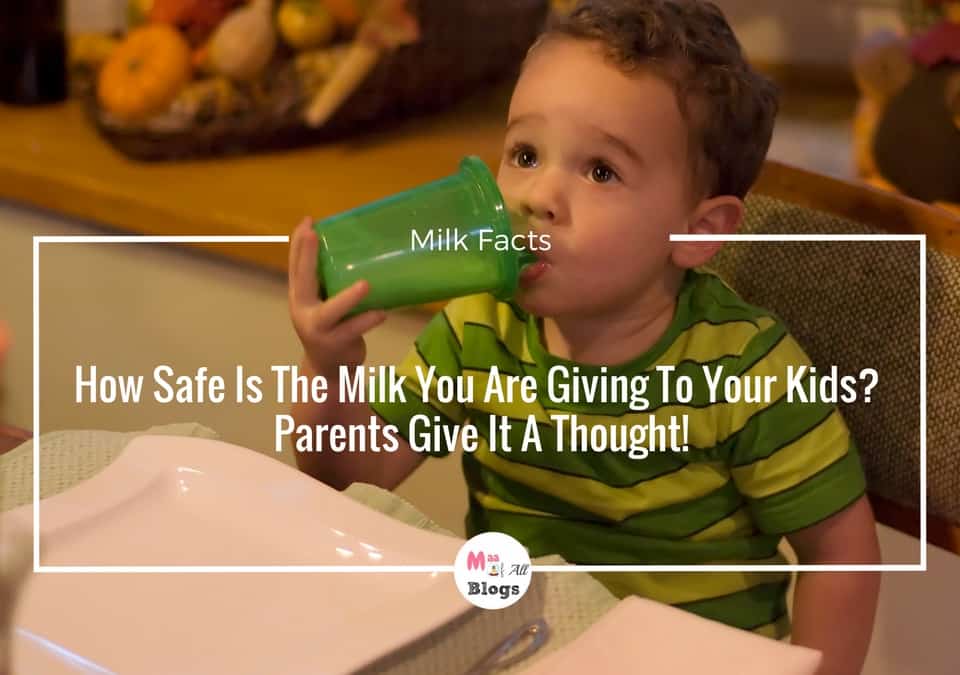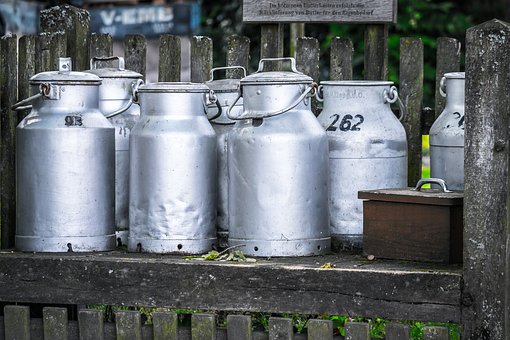How Safe Is The Milk You Are Giving To Your Kids?
This thought process for me started when I attended a workshop on organic cooking last year. Till then I had never given the milk we drank a second look. Milk is a source of calcium and it’s healthy for me and my kids and that’s what I believed in like every mom but it was eye opening to know that milk can have so many impurities if not procured from the right source. In the workshop they repeatedly questioned my beliefs, so how safe is the milk that you are giving your kids?
I tried replacing milk with juices and trying to find substitutes. My kids started missing milk as they were used to drinking it every day, twice a day. When my mom heard it she asked me to check with my pediatrician if I could avoid milk at all and clearly, his advice was that kids need milk for their bones and growth etc. So I had to find a system that ensured safety when it came to milk and I found that answer in Tetra Pak milk.
When packaged milk was first introduced in India people thought packaged milk was not as healthy as loose fresh milk. The acceptability of packaged milk has improved over the years but it still has many apprehensions. I prefer the Tetra Pak milk over any other form as they are convenient, safer than and as healthy as fresh milk. But there are many myths surrounding that let’s just discuss some myths associated with packaged milk.
Fresh Milk is healthier than Tetra Pak Milk
When I was a little kid, the local milkman used to come to our house and milk his buffalos in front of us and then mom used to boil the milk to remove impurities. This was the freshest form of milk that I could drink and so I believed in all my life. There are no milkmen coming with buffalos or cows anymore. What you get is packaged milk which we still boil. But did you know that when we boil the milk at such a high temperatures it loses its nutritional value, taste, and smell. True, micro-bacteria are killed in this process, but so are the good bacterias too.
On the other hand, Tetra Pak milk is UHT treated which means that it is exposed to temperatures are in the range of 135 to 137 degree Celsius for three seconds. Because it is a continuous process, it takes place in closed systems, keeping the beverage safe from contamination by airborne micro-organisms. UHT milk has to pass through heating and cooling stages and is then immediately filled into a sterile Tetra Pak carton, which has 6 layers of protection comprising of cardboard, polythene, and aluminum sheets. The shelf life of milk in Tetra Pak is six to nine months and can be kept at room temperature without curdling. It doesn’t curdle or get contaminated because it is kept away from light and bacteria.
Milk in Tetra Pak is not recommended for children
With the amount of contamination happening with the milkwalas, a Tetra Pak comes with a guarantee of a brand and now we know that milk in these packs is pure, safe and as it also retains most of its nutritive value, so it is good for your kids and adults in the family. Milk in Tetra Pak cartons do not need any added preservatives as they are treated though Ultra-high-temperature technology and packed in 6-layer protective packaging. I use it for my kids and I am glad they didn’t have to give up on milk. While some sources of milk may or may not be safe, milk is very essential when it comes to growth in kids. Finally, it boils down to choosing the right source.
On a personal note; I am a regular user of Tetra Pak milk and I have not found any issues in them. As a mom, it is my prerogative to ensure my family’s health and I believe in doing total research before adopting anything.














That’s an eye opener article with regards to milk…Makes me ponder on what to give my daughter next..
A1 milk, which is what is marketed commercially in tetra packs and in dairies, is a health hazard and is associated with inflammatory conditions such as diabetes, metabolic syndrome, and cancer, to name a few. A2 milk, obtained from desi cows, is easily digested and absorbed by humans and has been associated with multitudinous benefits. I note you said you like to do your research on things that are best for your kids, so check this out: A2 vs A1 milk.
We all know about the goodness of milk. But, how can we assume that the milk our children consume is safe? How much do we really know about milk?